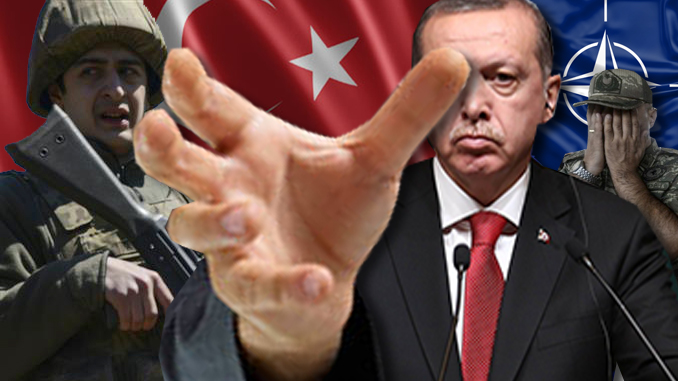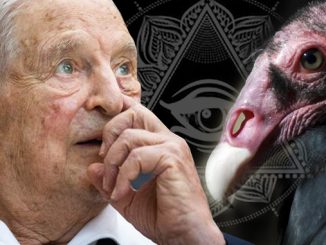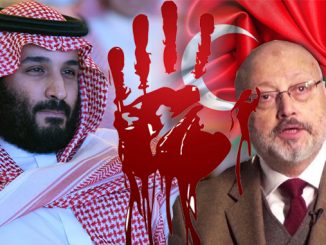
Turkey’s president is taking steps toward ensuring he rules the country for the foreseeable future. With an indefinite state of emergency in place, many of his political opponents in prison, and 98% of the media in his hands, it seems this former parliamentary representative democratic republic is well on its way to becoming a dictatorship.
By Richard Walker
The NATO leadership will soon have a Middle East despot in its ranks when Turkey’s President Recep Tayyip Erdogan uses his control over all elements of governmental power to ensure he remains for the foreseeable future president of a country increasingly dominated by staunch Islamic principles.
In April this year, he reset the presidential and national elections scheduled for November 2019 to June 24, 2018 in a move calculated to exploit and consolidate his hold on the Turkish system, including the military, intelligence agencies, police, and judiciary. With many of his political opponents in prison, and 98% of the media in his hands, he plans to rule unchallenged. It is the classic strategy of a budding dictator, say his enemies.
Since July 15, 2016, when elements of his armed forces staged an abortive coup against him, he has arrested tens of thousands of members of the opposition, confining many to jail and political trials. Today, unknown numbers of people remain behind bars. They include civil servants, soldiers, judges, journalists, and university professors. Many have been accused of supporting an American-based cleric, Fetullah Gulen, who was once an Erdogan political ally. Erdogan has demanded Gulen’s extradition to Turkey, alleging he and his supporters in Turkey were behind the coup. So far, the Trump administration has refused to hand him over, creating a widening political gulf between Ankara and Washington.
Erdogan has used his power to transform Turkey from a secular state to an Islamic one. He has accused the U.S. of playing a role in the coup. Days after he crushed it, he had his military seize control of the massive U.S. military base at Incirlik. Unknown to members of Congress, it held nuclear weapons intended for use in a war with Russia. They have since been moved out of Turkey. Some sources believe they may have been relocated to bases in Europe. The Pentagon has denied reports that it has plans to scale down the U.S. military presence in Turkey, but some believe the process has already begun at Incirlik.
Erdogan was always a man with grand ambitions to dominate the Middle East, but the Turkish economy never performed up to his expectations. It is suspected he has called these snap elections because he knows the economy will continue to underperform over the next year. He hopes by then to have unfettered control of the reins of power.
Until 2016, sharing a border with Russia did not make him feel comfortable, but Russian leader Vladimir Putin has managed to convince him that Washington has no defined Middle East policy and Turkey’s interests are better served being close to Russia, China, Iraq, and Iran. Even Israel’s Ha’aretz newspaper recognized the closeness of Turkey and Russia. Moscow has privately suggested that it will mediate a deal with his nemesis in Syria, Bashar al-Assad, permitting Turkey to ensure the Syrian Kurds do not become a problem on its border. Lately, Erdogan warned Washington that its alliance with the Syrian Kurds risks placing American forces in the firing line. It is a threat the Pentagon cannot dismiss.
As a leader who plans to elevate his status as a defender of Muslims in the region, he has cleverly adopted a confrontational tone with Israel over its slaughter of Palestinians. He has branded Netanyahu a terrorist and fascist and has labeled EU nations his enemies.
But it is in the political sphere in Turkey that he has proven to be astute and decisive. In the wake of the coup, he declared a state of emergency and then extended it indefinitely. When the parliamentary and presidential elections are over on June 24, political measures he has already inserted into the law will ensure that only a super majority in parliament will be able to force an investigation of him. That will insulate him legally and politically.
His argument for altering the balance of political power in Turkey is that giving him executive control is vital to preventing coups, led in the past by secular nationalists within the military who he claims were part of the deep state. He has gutted the intelligence services to ensure there are only committed Muslims in the upper echelons. He has either jailed or sacked senior military figures suspected of not being willing to commit to a loyalty pledge to him. Despite his efforts to eliminate threats, a deep state remains deeply embedded in the DNA of the country.
Whatever the future holds, there will be continuing erosion of Turkey’s attachment to NATO and Europe. In the late 1990s, Turkey had hoped to become a member of the EU, but the hope was dashed by fierce opposition from France, Germany, and Britain. At the core of their opposition was a fear that admitting Turkey would be akin to opening up Europe to a massive Muslim influx that would be dangerous and destabilizing. Erdogan has not forgiven the EU, and his resentment extends to NATO and the U.S.
Some security experts fear that Turkey will become a growing threat in the region. Some point to the anomaly that Turkey is on track to get America’s newest strike fighter, the F-35, while it installs the latest Russian S-400 missile shield that does not integrate with NATO’s own missile system.
Richard Walker is the pen name of a former N.Y. news producer.





Really liked that you called this clown what he is: a despot!
“Moscow has privately suggested that it will mediate a deal with his nemesis in Syria, Bashar al-Assad, permitting Turkey to ensure the Syrian Kurds do not become a problem on its border”
What a nice, bland, political way of saying, Russia will allow Turkey to continue massacring the Syrian Kurds, and invading Syria, as Erdogan did in January 2018.
Erdogan wants a 100 mile extension from Turkey into the Syrian country, to allow his drug smugglers and terrorist groups free reign to cross over and back any time they want to, without any interference from the Kurds: who have been staunch US allies.